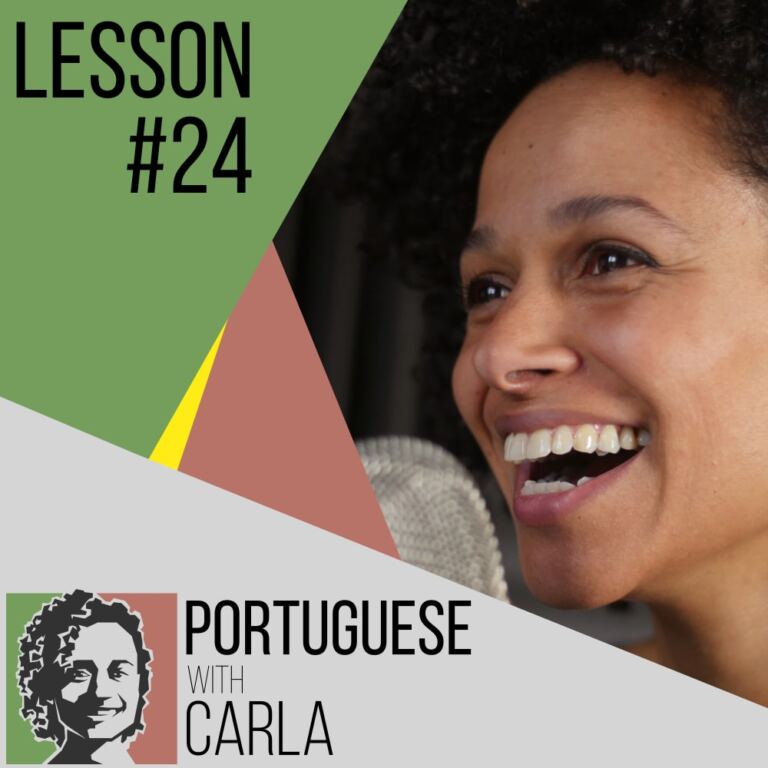Tune Into Fluency: Learn Language Through Music
Music is an art and a powerful tool. It affects people’s moods, triggers emotions, and sometimes shapes their behaviors. Most of us resort to our favorite tunes for an energy boost or to wind down after a stressful day. Governments try to inspire a sense of national identity and pride through national anthems. Businesses use popular or original songs to build stronger brands and impact customer behavior.
For many years, music has also had a significant impact on the way humans learn. Of course, it is not the first thing you will remember when you think back to your school years. But it was probably with the ABC song that you learned the alphabet.
Besides, if English is not your mother tongue, your English classes probably included some songs. You might remember singing along to Yellow Submarine, by The Beatles. Or you might have memorized the days of the week listening to Friday, I’m in Love, by The Cure.
Educational songs are standard practice in formal foreign language programs. Still, they are not an element most students and teachers focus on. So, what is the true impact of music on language learning? Can it still help you as an adult learner? How can you include music in your routine to progress in your target language?
Start by understanding the potential impact of music on your foreign language studies.
How Music Impacts Foreign Language Learning
Music videos and songs are considered informal learning methods. But their impact on learning a foreign language is tremendous. It is safe to say that music helps you learn languages as few other study methods can.
How Can You Learn a Language By Listening to Music?
With hundreds of learning hacks and techniques, most language learners wonder if and how music can make a real difference. Truthfully, most people don’t associate music videos and songs with the traditional methods of learning languages.
But the fact stands – music is one of the most powerful language-learning tools you can use. Examine five ways in which it helps you progress.

Develop Your Listening Skills
Music is a form of exposure. Through it, you listen to native speakers and their different accents at regular or fast-paced speed. By hearing the original lyrics, you can practice identifying words and sounds. You will also get better at guessing their meaning using context.
At the same time, most songs repeat at least some phrases or words. As you hear them multiple times, your brain retains them more easily.
Expand Your Vocabulary
Besides improving your listening skills, you will notice music helps to grow your vocabulary. Varied lyrics and song themes allow you to explore different subjects. Studies have demonstrated the efficacy of music for those learning English as a second language.

Additionally, artists often include colloquial and idiomatic expressions in their songs. Thus, your vocabulary starts including these unique terms and phrases that help you mingle with the locals.
Learn Grammar
For the majority of us, there is no going around the fact that grammar is boring. It is complex and tiresome to memorize. Music takes all that away. When you read and remember the lyrics of the songs you love, you are studying grammar.
Your brain is picking up on the patterns of the language you are learning. This process enables you to acquire challenging aspects like grammar and syntax. You will notice you can produce natural, connected speech more confidently when speaking your target language.
The Shadowing Technique
Shadowing is a technique many polyglots swear by. It consists of hearing someone say words and phrases in a foreign language. Then, you repeat them simultaneously or right after they are spoken, hence the term shadowing.
This strategy allows your brain to associate the sounds and meanings with specific movements of the mouth. Through it, you can enhance your speaking rhythm pronunciation, and overall fluency. Studies showed this technique as an effective way to learn English, but you can apply it to multiple languages.
For example, you can find many shadowing exercises in The Journey. Through them, you improve your pronunciation of European Portuguese. You also remember more easily the new words and expressions you have learned.
Music as a Fun Element
Making learning language processes fun is the best approach for students to progress faster. Most formal teaching programs limit engagement. In spite of that, science has long proved that a fun and relaxed environment fosters growth in students of all ages.
Besides music, there are many other ways to have fun while you learn a new language. If you want to make language learning more fun, here are ten ways to do so.
Develop Your Portuguese Language Skills Through Music
Music is quite literally a click of a button away from helping you learn your target language. Whether you have a smartphone, tablet, computer, or simple radio, you can find songs online and offline to help you learn.
You can use your foreign songs as background music or go full-on karaoke mode and sing along to them. Listen closely to pick up on sounds and identify words you already know. Write down what you think are the missing words and research the lyrics.
With all the information you need readily available online, listening to music earns one of the top spots among learning methods. It is one of the best, simplest, and cheapest ways to learn a new language. Here are some more musical resources you can use to explore the Portuguese language and culture.
Musical Podcast Episodes For Language Learners
If you have never heard of the Portuguese With Carla Podcast, it’s time you do. We’ve created this free resource to help you learn European Portuguese through exposure. It includes everything from memory games to shadowing exercises.
You will also get real-life dialogues and simple but insightful explanations. You can find it on our website, on YouTube, and in almost every podcatcher. The program also includes some musical episodes, so you can explore Portuguese songs and sing along with us. Here are three of them.

Lesson 33: Learn European Portuguese by Singing Along With Us!
Lesson 33 introduces you to Todo o Tempo do Mundo by Portuguese singer Rui Veloso. In this episode, you will approach the elementary aspects of foreign language learning. For example, it features the Past Simple Tense of the Indicative Mood.
Lesson 46: Learn European Portuguese with Music
Lesson 46 helps you master two especially tricky aspects for those learning a new language. It covers common verbs and pronunciation. The song is Os Maridos das Outras by Miguel Araújo.
Lesson 50: Singing European Portuguese with Carla
In Lesson 50, you will sing along to António Zambujo and his theme Lambreta. You will discover new words and colloquialisms. These are practical terms you can apply in everyday conversations with native speakers.
Do you want to take your European Portuguese studies to the next level? Discover in The Journey! This unique language program will help you learn in a natural and fun way. Based on an original feature film, it is engaging and guides you through the Portuguese language and culture.
A Playlist Built to Help You Learn European Portuguese
What if you could start listening to a playlist in your new language right now? That’s right! Here is your selection of Portuguese Hits (Curated For Learners)! These tunes will boost your progress while you have fun.
You can use them as an introduction to European Portuguese or to complement your current study routine. Of course, you can also create your own language-learning playlist with your favorite songs and music videos. Still, if you want to learn a language through music, you already have a place to start.
Look further into how the songs in this playlist can help you learn European Portuguese.
How Song Lyrics Help You Learn Portuguese From Portugal
In the playlist Portuguese Hits (Curated For Learners), you will find a variety of European Portuguese songs. Here is what you can learn from some of them:
- Lambreta, by António Zambujo
- Present Tense of the Indicative Mood
- Fortuna, by António Zambujo
- First-person singular
- Present Tense of the Indicative Mood
- Double negative
- Maridos das Outras, by Miguel Araújo
- Present Tense of the Indicative Mood
- Adjectives
- Movimento Perpétuo Associativo, by Deolinda
- Present Tense of the Indicative Mood for multiple subject pronouns
- Colloquial expressions
- A Vida Toda, by Carolina Deslandes
- Past Perfect Tense of the Indicative Mood
- A Nossa Vez, by Calema
- Accent from Angola
- A Paixão, by Rui Veloso
- Past Perfect Tense of the Indicative Mood
- Past Progressive (Pretérito Imperfeito) of the Indicative Mood
- José, by Miguel Araújo
- Informal vocabulary
- Reader’s Digest, by Miguel Araújo
- Slang and common vocabulary
- Tu e Eu, by Diogo Piçarra
- Future Tense of the Indicative Mood
- Variety of verbal tenses and vocabulary
- Espera, by Fernando Daniel
- Object pronouns (mim/ti)
- Interrogative sentences
- Present Tense of the Indicative Mood
- Imperative Mood
Learn Language Through Music – Your Soundtrack to Success
Music is one of the most powerful tools you can use to learn foreign languages. Through it, you can have fun while discovering new words and accents. It also helps you master tricky language learning aspects. For example, you can improve pronunciation and learn to identify different accents.
Listening to songs in your target language every day connects you to native speakers. It helps you acquire grammar and use it naturally instead of memorizing it.
Are you already learning a language through music? What is your favorite foreign song right now? And if you are learning European Portuguese, which is your top Portuguese tune? Let us know in the comment section below, and don’t forget to share this blog post with your friends who love a good rhythm!
Your 30-Day Plan to Learn Portuguese
Do you want to expand your European Portuguese studies? Here is your 30-day Free Plan to get you started! It includes original audio and songs by Portuguese artists. You will also learn through episodes of a popular TV show and complete engaging language exercises. Discover more about this program in our post: Start Learning European Portuguese – Free 30-Day Plan! Alternatively, enroll directly to Learn Portuguese in 30 Days!








